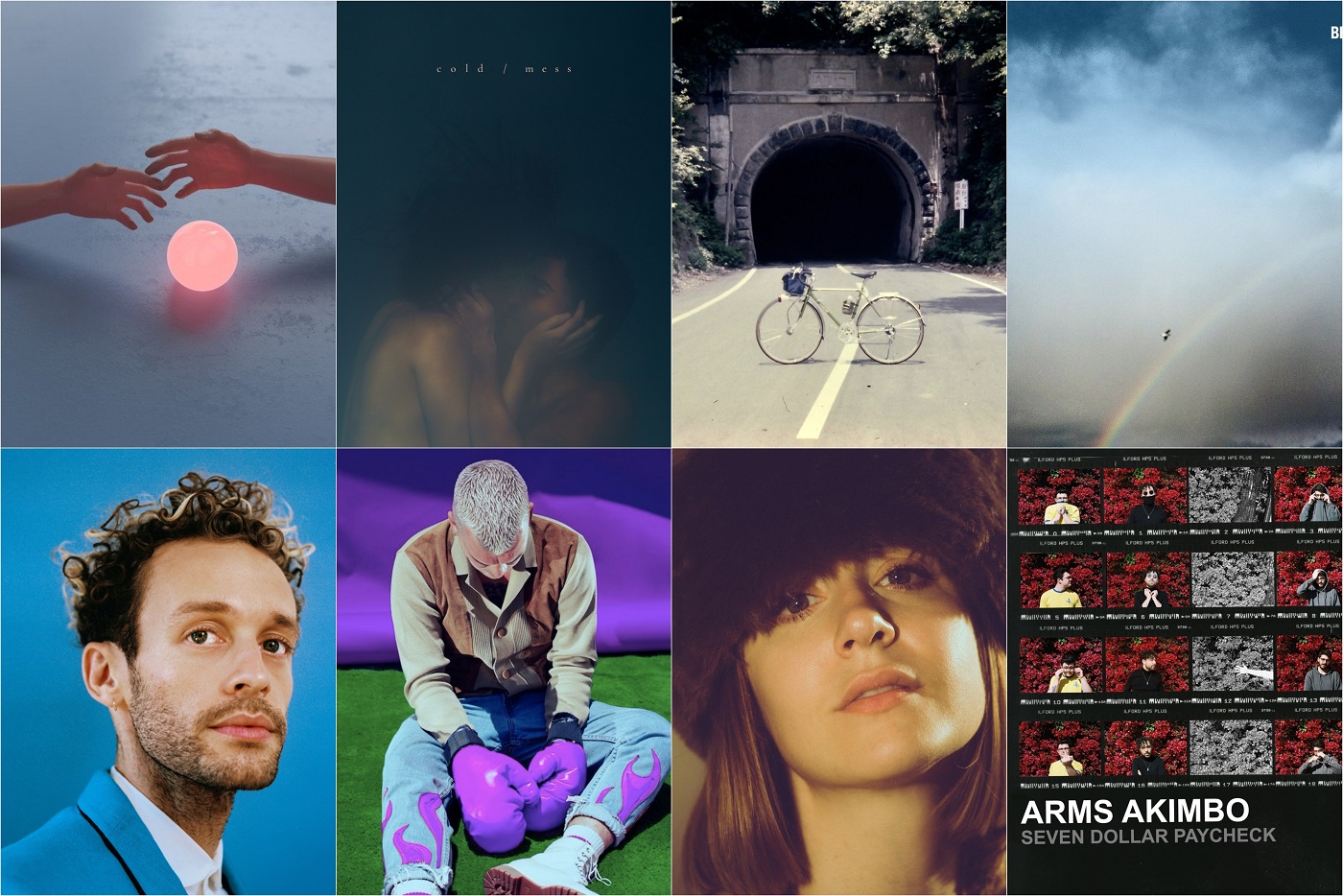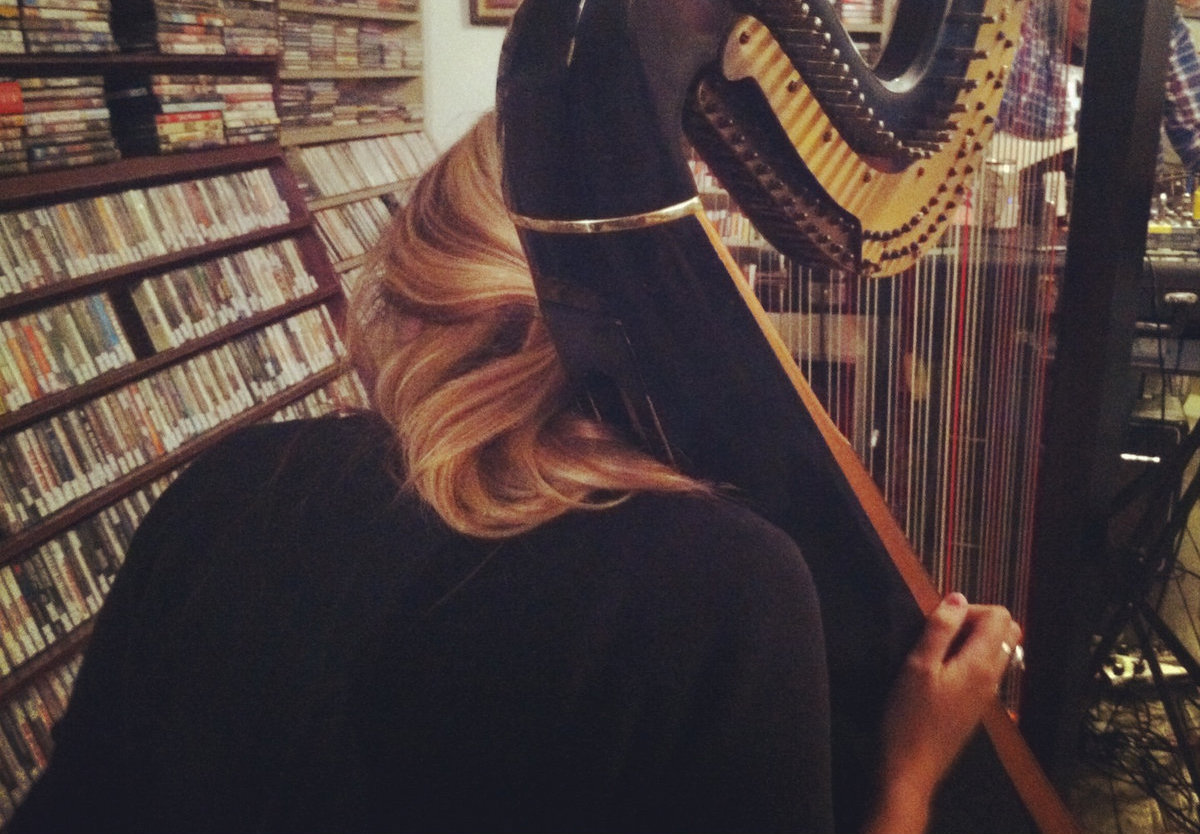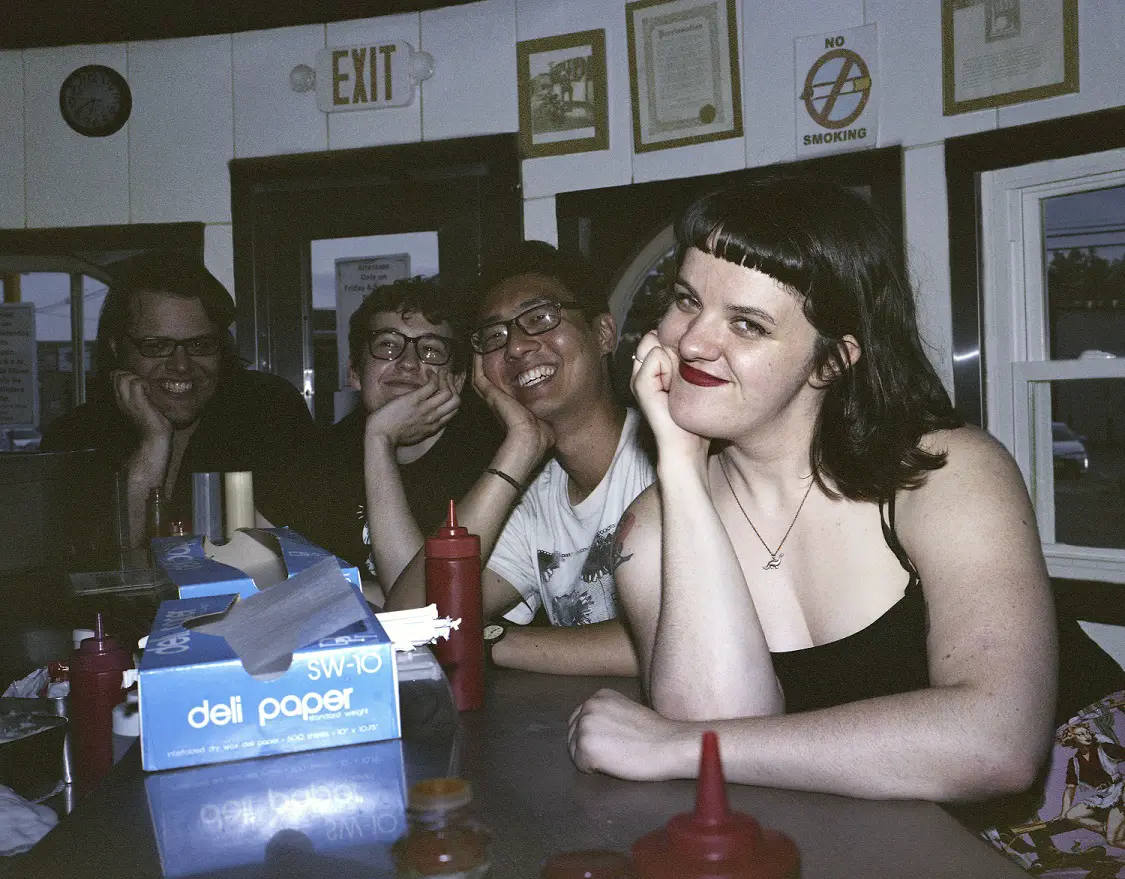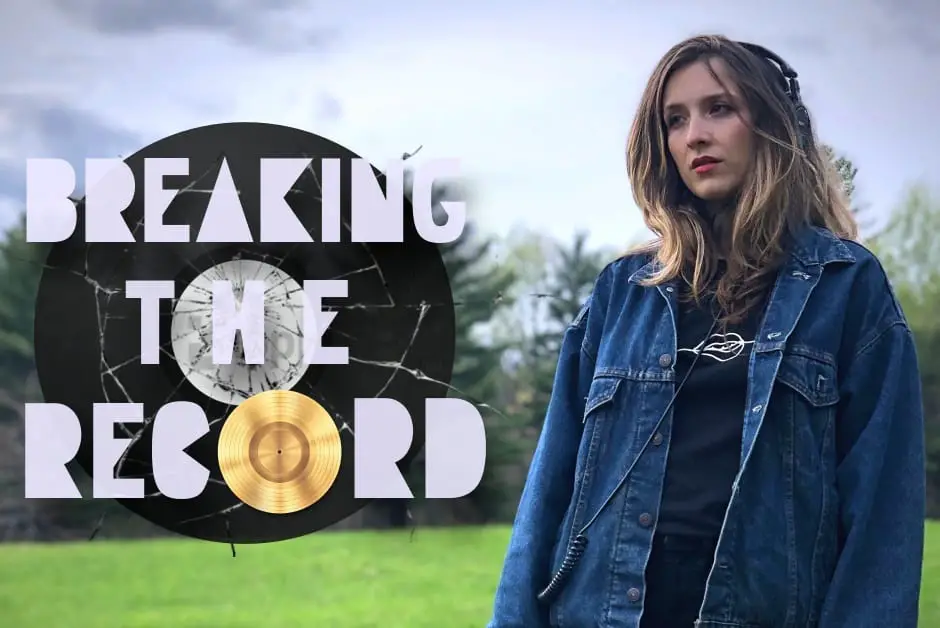The songwriter’s songwriter Leif Vollebekk dives into the stirring intimacy of his album ‘New Ways,’ a transformative journey sweeping the depths of the soul.
Stream: ‘New Ways’ – Leif Vollebekk
I heard everything in new ways, so that’s what I called it. I just heard everything differently.
Ask many a musician who their favorite artist is nowadays, and you’re likely to hear the name Leif Vollebekk thrown around quite a bit. A spirited singer/songwriter with a heart of gold, Vollebekk made waves with his 2017 album Twin Solitude, whose expansive warmth and earnest balladry earned him a short list nomination by the CBC’s prestigious Polaris Music Prize.

Vollebekk’s tour schedule has picked up quite a bit over the past two years, but that hasn’t kept him from finding time to make another album. Released November 1 via Secret City Records, New Ways arrives as an intimate follow-up album full of energy and emotion. Described by Vollebekk as a groovier, more uptempo “companion piece” to its predecessor, New Ways sweeps the depths of the soul in a thoughtful exploration of the little things – life’s special, transient moments of connection and growth.
Hailing the album’s lead single “Hot Tears” as an Atwood Editor’s Pick last month, we praised Vollebekk’s ability to channel raw humanity into seemingly everything he touches, calling the song a stirring encapsulation of experience: “It’s hard to put this sensation into words, but it makes sense on record: The immediacy of every piano chord, the savage churn of Vollebekk’s emotional delivery. He’s crying and calling out to us all at once, a siren of the deep blue come to life through a palette rife with intimate colors and sounds. Jazzy and dark, yet immersive in its shining light, “Hot Tears” softens the blow while dealing it all at the same time.”
With its dramatic, piano and beat-fueled portraitures rich with emotion and intense reflection, New Ways effortlessly explains why Leif Vollebekk is the songwriter’s songwriter. Its stunning depths and majestic caverns resonate with the passion of an artist driven by his own inner angels and demons. He moves us to feel familiar emotions in new ways, and therein lies the magic of this album: Unapologetically raw and perfectly balanced, New Ways is, for those who want it, a truly transformative journey.
Speaking with Atwood Magazine, Leif Vollebekk opened up about all aspects of his new album – discussing everything from Macy Gray’s musical influence to his own perfectionist tendencies, a deep affection for human connections, and the excitement of bringing the sounds in your head to life. Dive in deep with Atwood Magazine’s exclusive interview below!
A CONVERSATION WITH LEIF VOLLEBEKK
Atwood Magazine: Hey Leif, it’s great to connect! Let me just say, diving in, that I really do appreciate your time. I've heard so much about Leif Vollebekk from so many other musicians, that you are the artist they are listening to and recommending to us.
Leif Vollebekk: Who said that? Did I pay somebody?
Australian singer/songwriter Angie McMahon, and London artists Harry Marshall and Tom Speight! They've all mentioned that they've been listening to your music lately, and there's a few others too, but that's led me to call you the songwriter's songwriter.
Leif Vollebekk: [laughs] Yeah. I think that means that I won’t make any money in my lifetime. That’s amazing. I mean, it’s the best, yeah. Who cares about money, right?
Yeah! But there's something to be said if you're the artist that the other artists are listening to, right?
Leif Vollebekk: Yeah, it’s funny. What’s weird is that I kind of consciously tried to make music that all my peers wouldn’t… the people that I know in Montreal, I tried to make music that they wouldn’t care about in a way. I was like, “Screw this. I’m just going to make music for the person that doesn’t make music,” and it somehow… it made people who make music, like it more. You know what I mean? I think before I used to try to write a song that would please other people that wrote songs and recorded. And like, “Oh, I’ll use this instrument and they’ll be really excited that I recorded it with this microphone and all that.” Now, I don’t give a shit, and then it’s kind of nice. It’s kind of a funny thing.
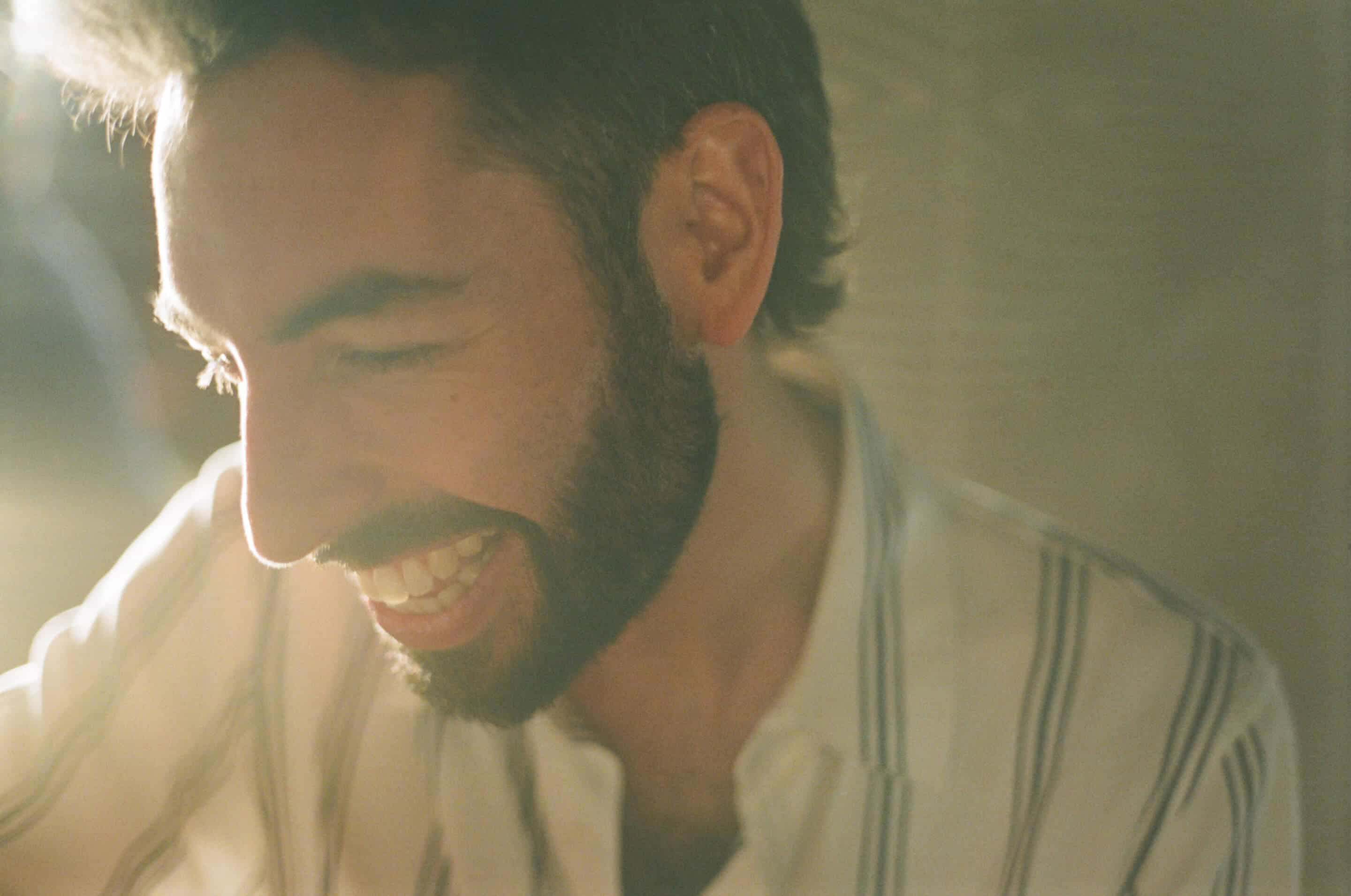
That's really interesting. Well, this is your fourth full-length album. What’s your experience been like over time?
Leif Vollebekk: Yeah, but it feels like my second album, kind of. When I was younger, I was always making music in high school and doing demos and recording on a four-track tape recorder and playing drums. That was what I did in all my spare time. I remember every year, I’d listened to old things I did a year later or something, and I’d be like, “This is the worst thing ever.” It was so bad. And so I told myself, “Before you put out a record for real, make sure that you sit on it for a good while because once it sucks out in public, it sucks in public forever.” Whereas the demos are kind of in my mom’s basement, you know?
Anyhow, so I just think that maybe those first two records… I kind of didn’t put them out, because I only feel like the last two, I really… I feel like I finally kind of figured something out. I don’t know; I feel like this is my second record. Yeah, that’s why it feels extra long. Because I’m like, “What were those? Who was that? What were they thinking? What were you doing on those other records?” I don’t think that’s you.
Not to dismiss a solid seven years' worth of being in and around the professional music industry. But I understand what you mean at the same time.
Leif Vollebekk: Yeah, yeah, yeah, I don’t regret anything. It’s funny! It’s feels like the last two are me, and the other two are like, “Oh, I don’t know that guy anymore.” Inevitably, I’m going to feel the same way about these ones at some point.
Over time, you get better and better. I’ve got to say, a lot of people tell me that they still listen to Twin Solitude. I guess the first question I want to ask is: How have you changed or transformed in between the release of Twin Solitude and New Ways?
Leif Vollebekk: I feel really connected to Twin Solitude. That last track on Twin Solitude (“Rest”), I was like, “Oh, yeah. It’s kind of just me.” It’s not me trying to do anything. It’s just what I sound like when I actually don’t care and just play music, and it took me a while to get there. And so now I feel a kinship to it. I started working on this new record while I was mixing that one. I had this idea for this other record that it would be a companion piece.
The way I see it, it’s kind of the songs that should have been in-between. It doesn’t really work, but I was picturing a record that would fit in-between all the songs on Twin Solitude because Twin Solitude is only ballads. I decided that I liked ballads and I only would ever listen to ballads. So I was going to make a record that was only ballads. And then I did. Then I was like, “Great.”
And then when you play that stuff live, you really are like, “Oh my God.” Everything’s the same tempo and it’s really not… It doesn’t feel as good live. I was like, “I need songs that are going to break out… in between each of my Twin Solitude songs.” It’s kind of this record. It’s kind of a little bit tighter and a little bit… For me it’s like this is part two. That one, Twin Solitude, I also wrote more alone, after a period of a lot of just kind of meditation, and it’s more meditative. Then this one I wrote while I was on tour and going to a lot of stuff and meeting new people and feeling all kinds of things.
It’s a very conversational record and much more… There’s a lot more searching and trying to figure things out on his record, whereas the other record was more about taking stock of everything with a huge distance. This one’s really kind of in the mix. It’s very close and intimate and in the moment, and no real like larger view, like a really intense physical record in a way. If that makes sense? I just see them as this weird yin and yang kind of thing, and I really, I like it that way.
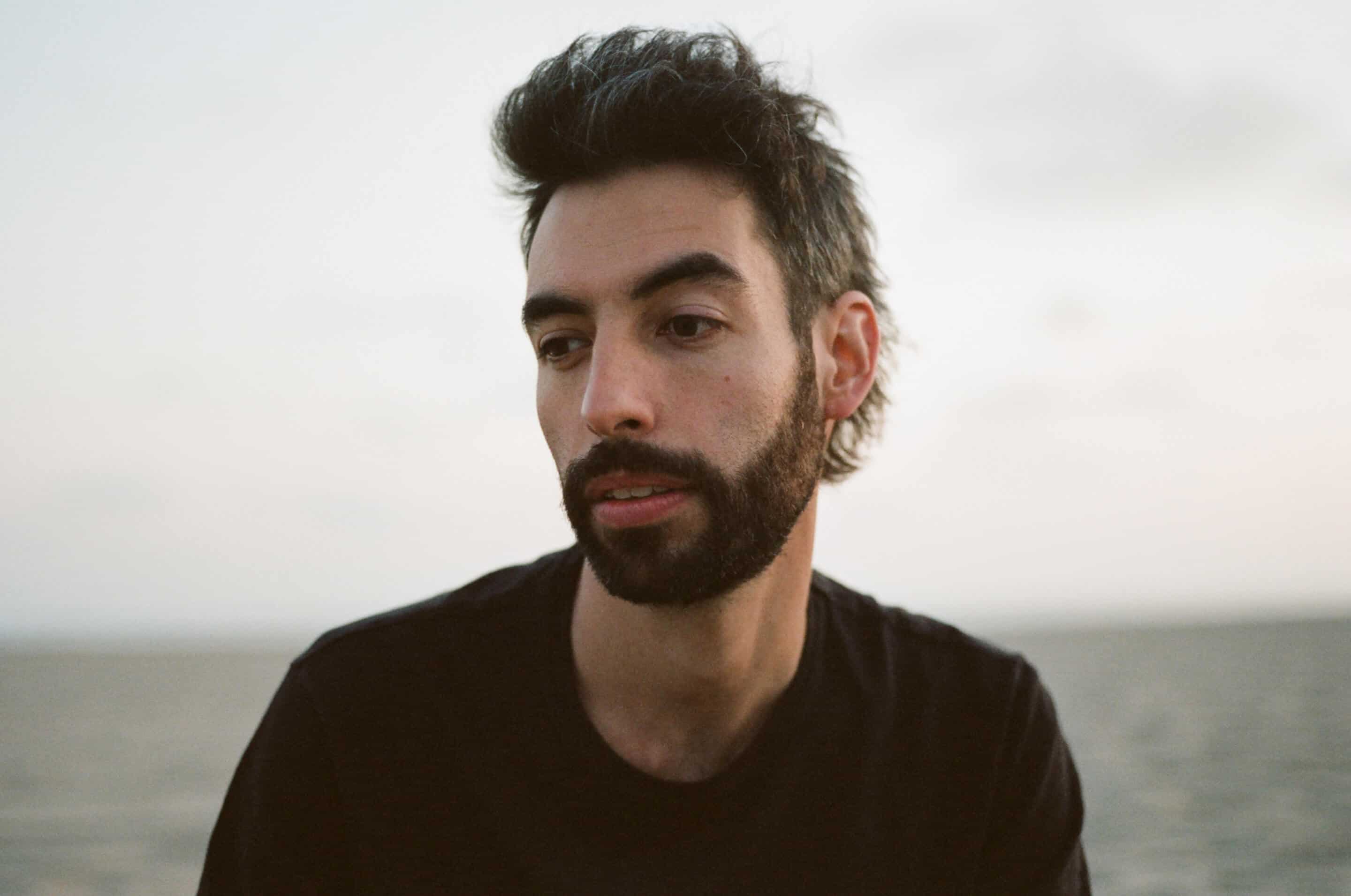
I guess that kind of means you're still in the Twin Solitude phase, if you will? And this is something that has maintained?
Leif Vollebekk: Yeah, kind of. On that last one, I figured out that I always used to think I needed a producer or I was looking for one. And then on Twin Solitude, I suddenly was like, “I want a producer to help me find the sound in my head.” Then I realized, “Oh wait, if I have a sound in my head, I’ll just get it.” It takes me forever, but I get there. I now produce my records. The songs that worked the best off of Twin Solitude, the ones that I connected with the most and that in turn somehow people would come up to me, and tell me that these are the songs that really affected them, were the last three I recorded, which were “Elegy,” “Into the Ether,” and “Vancouver Time.” Those are the only three that I recorded just myself and a drummer because the rest were recorded live with a full band. Those three I was like, “Oh, if I play just with the drummer, he’s like the metronome.” I sing live. Then we build the entire track around my vocal. That’s really fun. It feels good to me.
I remember thinking it was a bit bold and it wouldn’t work, but I was going to do it anyway. But then it connected with people. Then I was like, “Wait a minute, I like it better, people like it better, and it’s more fun.” So then I was like, “On the next one, I’m going to do the entire record like this, where I’m just playing live. I sing live on the tape,” right? I hate computers, and with a drummer… Basically, this record is just me trying to go further with the things that I learned. It kind of makes sense, but not in a dogmatic way. I was just like, “Oh wait, I can get away with doing that? Just playing with a drummer and adding everything after?” And so that’s what I did. And we worked even harder on getting the right sound this time. I think I was a little bit less forgiving.
We recorded “Transatlantic Flight” twice. I went home and listened to everything, and then I was like, “Oh, the tempo is one BPM too slow, so I’m going to speed it up one BPM.” Because it’s all on tape, it meant that we… I brought my drummer back to the studio, had him bring the same cymbal. I got the same guy to tune the piano so it would be the same kind of color. We set up all the mics the same. We just did another take six months later, one BPM faster. Actually, no, it might’ve been eight months, but it sounds identical, it’s such a good take.
That sounds so intense and tenacious; I absolutely love it.
Leif Vollebekk: Yeah, it was tenacious. It wasn’t hard. I felt relentless: It just was like climbing the mountain. You’re like, “Well, you just got to go and eventually you’ll get there. You just have to keep walking.” No step was particularly hard, but it took forever because I was like, “I’m not going to stop until I get it.” Then we got it, and I’d be like, “Okay, next song.”
What inspired the title of this album, New Ways?
Leif Vollebekk: Originally, it was called Phaedrus, which is the name of one of the songs on the record. It was called Phaedrus for the longest time because I saw it more as a dialogue. And that song seemed like it kind of touched… It seemed like the anchor to the record in a way, because it was kind of this love song, but in a crazier way because one of the lyrics is, “Were you with me when I drank from the Leppe?” I thought it was like a pretty… I was like, “Oh, that’s the closest I ever got to saying what it is.” Maybe. It’s a pretty heavy feeling. I thought all the songs were about dealing with that line in a way.
But when I was mixing the record, and when we were mastering it, and I was putting all the songs and putting the track order together, all the songs started sounding different. We started talking to each other because I don’t settle on an order until later, and that’s the part with the bit… Leave it to the heavens just to place things. Then suddenly you go, “Oh my God, this is the order of the record,” then you find out what the story is. Then you go, “Fuck, that is the story.” So the record kind of just opened up. I thought I hit everything, and… I don’t know how to say it in any other way. I heard everything in new ways, so that’s what I called it. I just heard everything differently.
Then when the record ended, everything in my life started changing. I got a new apartment. I got a new studio. I got a new piano. Not just the physical side, but everything changed. And so I felt like this record was this big, kind of a lightning rod of change. I perceived all the songs differently.
The record kind of was this agent of change in a way, and so I kind of, I just named it New Ways. Also,it didn’t help that a couple people that I told the title to couldn’t pronounce it, couldn’t pronounce “Phaedrus,” and I remember thinking, “Oh, I don’t want to be one of those artists that names something that no one can name and everyone’s asking a question about it.” I just want everything to be simple.
I also thought all this feels on the record, like the last, Twin Solitude, everything was just one ballad. It’s almost like one song all the way through, and this one, every song has a totally different rhythm, and a totally different packet and tempo. And some are swung, some are lightly swung… Some are like country feel, held back, you know? And that was the big thing, so I felt like each song seems to go in a different direction, and you know?
Like, I wish that the label had named it and I didn’t have to do it, because I always liked those records, like Another Side of Bob Dylan and 10 New Songs from Leonard Cohen or whatever. They’re not really titles with meanings as much as they are just, “Here’s more songs. Here’s more songs. Enjoy them. Here.” You know?
You really are the songwriter's songwriter.
Leif Vollebekk: Oh, am I? Because I’m obsessed with Bob and Leonard?
Maybe a little bit. Not everybody brings them up.
Leif Vollebekk: Oh, yeah.
Let's dive into it then. You introduced New Ways with the song “Hot Tears.” What's the significance of the song for you and why was it the introduction of choice for this album?
Leif Vollebekk: It was the last song. On the last record, the last thing that I recorded that I was really chasing, like this was “Elegy,” and I did it maybe six different ways. I’d done it acoustically. I’d done it on a Wurlitzer with a band. I’d done it finger-picked, like a Nick Drake thing. And then I ended up doing it one more time… “We’re going to bring the drummer in. We’re gonna set up all the mikes. I’m going to try it one last time on the piano with just drums,” and then it worked!
And it was the same thing with “Hot Tears.” It was a test on getting away from it. It was on the electric first. At one point it sounded like an Oasis cover, and then it went to a country thing. And I just kept recording it, and I would be in my head all the time. And so I did the same thing. I was like, okay, one more time, I’m going to try recording it, and then that’s it. And either I don’t put the song on the record, or we’ll have it. And so it was the last thing I did, and it kind of felt the same, and it also felt like it was in between all the feels and ideas of the record. It was piano, but it was a bit hip-hoppy in the drums.
So it was more like it just felt like it was the one that was the most eager and the most urgent, and I felt like it coming out later made no sense because it really wanted to be in the world now, I guess, where the others are much more patient songs. Yeah.
I understand that. There's an urgency about that song that we don't really necessarily hear in all of your other material.
Leif Vollebekk: Some people are like, it just chills everything up. And I thought, oh, is it? It feels intense to me, that one.
I think it's different, too. I see the crossover, but at the same time, it feels like something new for me. It feels fresh in a way.
Leif Vollebekk: Yeah, it doesn’t really sound like a song to me. It just sounds like the thing that was in my head.
Like a feeling.
Leif Vollebekk: That’s what’s weird. When people like it or don’t like it, I don’t have an emotional response. It’s like, it was in my head for about six months straight, the melody going over and over again, so I just kind of like, I don’t have any sort of… Yeah, it’s a weird one. It doesn’t sound like a song to me. It just sounds like this thing that was in my head for a long time.
I definitely think you could go on and on. It's verse, chorus, verse, chorus, but you could just kind of keep on going with Hot Tears for a solid 20 minutes, and it wouldn't let up.
Leif Vollebekk: Uh-huh, yeah. There’s another verse to it that I cut because it just didn’t want to – most of my songs, they go into this zone, and as long as I have lyrics, they just stay in the zone, kind of like a Tom Waits-y thing, where it’s like 14 minutes, and he’s just describing everybody in the bar and what’s wrong with them, and “this guy doesn’t have a hand, and this guy is worn out like the seat that he’s sitting on.” But this one was like, I had a whole other verse that went way more like visual, and I just had to cut it because it was like, it just wanted to get in and get out really fast, and that was also kind of strange. It didn’t want to hang out. It just wanted to burn up quickly like a match.
That's really cool. Going back to the top of this album, you sing in opener “The Way That You Feel”: “It's not raining, babe, but I wish it was.” This line really struck me as a part of the introduction to this album. Why do you start our adventure with this song?
Leif Vollebekk: It was one of the first songs I wrote. It’s funny, because that one, I was maybe going to cut it because it didn’t come out the way it was supposed to. It was supposed to be this kind of funky, soulful piano thing. It was supposed to be this really soulful thing, and I have all these versions of it, but something about it, you know “Africa” by D’Angelo? There’s this acoustic demo version of it that is heart-melting, mind-blowing, and it’s just him on the piano, and it feels so good, and it feels. It’s got the low, it’s got bass notes, it’s got back-beat, it’s got the whole thing, but it’s just him on the piano, and I thought it was just this thing with that.
It’s supposed to feel really fresh and alive, and it was supposed to be like this piano piece that just kind of opened up to this mosaic thing, and it just sounded flat every time I recorded it, and then I tried it with Homer, one of the drummers on the record, in L.A. and I was like, “Let’s just try it on the Wurlitzer, because this piano thing isn’t working,” and then it became that, and it was the first time it sounded like a song, and it didn’t sound like the song I wrote, but it sounded like a mood for sure.
Then I was like, whatever this is, let’s just see where it goes, and it went to this really moody, kind of open space, and I felt like it was this really nice opening because there was so much space in it, and I thought, “Oh, this is kind of a nice!” It’s not really a song so much as a gate. All the other ones are living in the house, but this is more like the song that you just put on, and it should kind of put you in a mood where you’re like, “Oh, I see what’s happening.” There’s lots of space, and now you’re ready to hear it. I’ve read some stories about different aspects of whatever it is that human beings do to each other.
All the other songs seem to kind of deal with aspects of that first yearning in that song. I wrote it at a time when I was really feeling that song, like that song was all that was true for a few months. I played it all the time, and I was working on the rhythm of it and everything, and then the emotions inside it and the song remained, but I don’t feel the pain in that song anymore. I don’t feel any of that, but I thought in a way, the way that it was recorded, it is kind of therapeutic and calming, and it doesn’t seem to have any of the pain, but… maybe it does. I’m not… I don’t listen too much. I don’t know what it sounds like. It’s new, listening to it.

Yeah. How did you know when New Ways was done and ready to be out in the world?
Leif Vollebekk: I guess when the mixing, when the mixes started happening, it started sounding like what they were supposed to sound like. You kind of know, and then I don’t know. I just wanted it done. I think Gregory Alan Isakov, he’s a friend of mine, and he’s amazing. He said it perfectly. He goes, “When you add another thing, and it’s not better, and you take it away, and it’s better, that’s when it’s done.” You know? You can’t add anymore. There’s nothing else to do, and that’s not going to work, and you just know.
I really like that description.
Leif Vollebekk: How simple is that!? That’s exactly what it is. People are like, “Oh, your arrangements are really sparse,” and it’s like, I’m not trying to do that. I just put on something and I go, “That doesn’t sound better. It sounds worse,” so then I cut it. I have all these extra tracks on stuff that I’m just like, that just got in the way of the vocal, or that got in the way of that beautiful steel guitar part. What’s the point of it, you know? When you’re taking a bite of a nice piece of sushi, I’m not stuffing pizza in your mouth, you know? Just let them have it; let them taste what’s there…
There’s one rule that’s like, with anything, less is more, but in music, if you add… This one producer told me, he said, “The more sound you add, the slower everything gets because the real estate gets taken up.” So on a Leonard Cohen song, just acoustic guitar and a voice, his voice is as big as, you know, pure genius. It’s crazy, huge. But if you added trombones and drums, like my favorite Leonard Cohen song with drums, his voice is never as big because the drums are bigger, and so he gets smaller and further away. And a Nick Drake record, like on Pink Moon when he’s just on acoustic guitar and vocal, his guitar sounds like there’s like an apocalypse, and his voice is beautiful and rich. If you add anything, you’re just taking away.
So it’s this weird thing where I’m actually like, I see piano or the guitar. If I mic it properly and get it really in there, you’re going to hear little tiny instruments within the instrument. You’re going to hear harmonics that have time to come and disappear and little clicks and pops. And those are like micro arrangements, you know? That’s why it’s hard to play this stuff live because you need to… live sound is never as good as a recorded sound, so you’re missing all this information. It can get very boring, but when you mic everything really close and tight, you hear all kinds of little artifacts that come out and they almost sound like metaphysical, like putting something under a microscope. It’s so interesting-looking, you know? Like that ant looks insane under the microscope, and you could look at it for hours.
Listening to your music, you’re hearing an embrace of these larger arrangements, using what feels like more sounds while maintaining this very intimate, serene environment.
Leif Vollebekk: Uh-huh. It’s like a good woodworker, like when they’ve just got a really good piece of wood, and then they just do the best they can with it. They’re not going to add anything to it, and you look at it, and it’s got all this grain and it’s got really nice texture and the edge is really nice. It’s like, yeah, maybe we are saying the same thing. I just hear it’s like… For me, all of it, and getting the right microphone that really lets you hear the instrument the way I think it wants to be heard. A lot of ribbon microphones, these older… Yeah, I really like ribbon microphones. It just sounds so good, papery, and they’re really warm. There’s a lot of really nice balance mid-range and not too much high frequencies.
I feel like “warm” is kind of the keyword for your music.
Leif Vollebekk: I try not to work too much on the top end, and that’s what we have to kind of fix in mastering and stuff, but the high end can get a bit cluttered. I like the “mids.”
So you call yourself “prisoner” again and again in “Transatlantic Flight.” I know we talked about that song a little bit earlier and the multiple takes. Can you discuss that word choice and what this song represents for you?
Leif Vollebekk: I didn’t think about that. Isn’t that crazy? Yeah, it’s Macy Gray. She’s fast and she goes, “I try to walk away and I fall and I try to…” I always get the lyrics wrong because I can’t remember lyrics.
“You stumble.”
Leif Vollebekk: Yeah! I also stole from Macy Gray for the other song. “I say goodbye, and I fall. I try to walk and I choke. I try to say goodbye and I choke. Try to walk away and I stumble.” Yeah, and then one line, she goes, “But I am just a prisoner,” and the band stops… “of your love.” It’s such a good moment. I remember hearing that eight years ago on the radio. I was in Florida at the time, and I thought, who is actually making good music right now? Because everything on the radio sounds like shit, and yeah, that’s all that is, just that one moment. It’s just that one moment in my brain came out when I was writing it.
When you’re writing a song like that, you can’t analyze the lyrics, otherwise, you won’t finish it, you know? And I try not to analyze it until I’m done recording it, so then you find out what you’re actually going to say. So it’s a lot more honest than I think I would normally want to do, but, yeah, but it’s “I am a prisoner of your love.” Thank you, Macy Gray. That’s all that is and thinking about that moment. Thinking about that moment is just, that half a bar of silence in that song, and she goes, “I’m a prisoner of your love.” That’s it. That’s all it is.
Some songs just emanate soul, like “Hot Tears” and “Phaedrus.” I especially love how you talked about a moment of silence. “Phaedrus” has that moment of silence in it.
Leif Vollebekk: Yeah, see, thank you, Macy Gray. This is an homage to Macy Gray. This is the one song.
But I especially love that latter track, “Phaedrus,” and how much it dwells on your voice and in silence, and you said that that was originally the inspiration for the song, the whole album as a title, right?
Leif Vollebekk: Yeah. Yeah, exactly.
So why is the song special? Rather, what makes it special for you?
Leif Vollebekk: See, I think I woke up at maybe like 2:00 in the morning or something, and it’s so funny, because when it happens, you feel really annoyed, and when it doesn’t happen, you feel like, man, I used to be so blessed, but yeah, I woke up at 2:00 in the morning with this thing in my head about how, oh, if i don’t write this down, I’m going to lose it, and so I was kind of annoyed, but I got it out because I wrote it down, and I played it as quietly as possible on the piano at my old apartment, and I just wrote out this thing, and I went back to bed, and the next morning, I was like, oh, really nice one. Thanks for writing it, because at 2:00 in the morning, you wake up 2:00 or 3:00 in the morning, you do not want to go to work. So it kind of came out of this chant thing, and it kind of reminds me a little bit of the Eagles’ “Take It to the Limit.” That’s such a great song. And yeah, I knew it was going to be easy. It was kind of the easiest one. It was the second song that we tracked. We tracked “Never Be Back” and that song the same day, I think, and early on when I was on tour, and then we went back and finished the rest of the record. I think I did it six months after “Elegy” came out. I was in the studio, and I recorded those two songs.
Right.
Leif Vollebekk: And yeah, and so we just did one take. I told my drummer, I was like, “Okay, it’s 6/8, and then like stops.” And I just played him one verse, and then we just played it beginning to end, and yeah, that’s it. It was one take, and it was the end of the day, so my voice was on the edge, which is when it sounds the best, when it’s about to blow. And yeah, that’s it. We just did it once, and it felt great, and I thought, okay, easy.
You make it sound easy.
Leif Vollebekk: There was no effort. There was no effort involved in that song whatsoever, which is ironically what happens. Whenever that happens, I think I really like it, and people like it, but it never goes on the radio, and nobody ever requests it, so it’s this weird thing like, when it’s easy, it doesn’t actually… it always seem to be when I sweat and I re-record stuff and I’m all stressed out and I’m hunting something down that it seems to have any second life, I guess. I’m glad you like it, because that one is the most simple, effortless song, and it just, I thought the drumming on it was amazing, and I don’t think I’ll ever sing it better than that. It’s one time, you know?
Yeah.
Leif Vollebekk: It’s the first time we played it all the way through. Yeah.
Maybe songs like that become the little secret, like the song that you kind of keep to yourself in the back corner.
Leif Vollebekk: Yeah, maybe. I know that… Yeah. Yeah. I just know which songs I love, and some of them are hits, and some of them aren’t, so, yeah, you’re right. It’s okay. I mean, it would just be nice if you’re like, “Hey, Leif, here’s a million dollars for doing a really simple one-take version of your song,” you know? And I’ll be like, yeah, like, super simple, and I always mix it.
I get it. I really love the end in “Wait a While,” because we have talked about various instruments, and you used this soft brass, at least it sounds like that, to create this lush, lullaby close. And I really love that. I love the way that you have kind of transformed horns from the stereotypically loud, in-your-face thing to this background object, and you do that all over the place, but I love the effect that it has on the mood.
Leif Vollebekk: Oh, thanks. That’s my friend Adam. He’s actually more of a dancer now than a sax player. He’s just an artist. And so when I heard him play years and years ago in Montreal, I was like, I don’t like saxophone. I like Adam playing saxophone. This is crazy. So that’s just me having the luck to have someone like that in my life. I go, “I want you to do your thing on my thing.”
Right.
Leif Vollebekk: “Just go be you.” And I like it, too. But he just has this really velvety, breathy way of playing the saxophone that just exudes, like it’s so sensual and so warm and rich, and put a ribbon microphone on that, you know? And then I kind of support with a pump organ because it’s all kind of reed instruments in a way, like pump organ having lots of reeds. So it kind of becomes this mellifluous kind of washy thing. And on my last record on “Rest,” one of the tracks, it’s just saxophone and pump organ and a bit of harp. But it’s like an eight-minute song. But this one is like, oh, my God, am I allowed to do it again? I hear that sound but only for like 30 seconds instead of eight minutes, you know?
But, yeah, I’m glad you like it. And for me, it was like a no-brainer. It’s like, oh, this is it. And that song, it had saxophone on the whole thing, but I was like, no, I got to cut it. It’s got to come right in at the end, because you have to wait a while.
You do.
Leif Vollebekk: You know? Yeah.
You really do. So why do you end the album with “Apalachee Plain”?
Leif Vollebekk: You know what? I played it for the guy who runs my label, Justin West, who’s kind of a genius, I think. And I just played it for him at my apartment when I was working on mixes. And I played it for him, and I was like, “I don’t know about this song. I don’t know what you think about it,” and he was like, “It sounds like a good last song on the record to me.” And that just stuck. Originally it was going to be third or second, but somebody just said something really casually, and you’re like, “Oh, yeah, that’s great.” I was just totally…
I love that.
Leif Vollebekk: I agreed with that. Yeah. But then what happens is that I agreed with him because obviously, that was the right… it was what was supposed to happen, and when I listen to the record now, it’s like, of course. He hadn’t even heard the other songs, you know? And he was like, “All right, it sounds like a last song on the record,” and so it kind of sums everything up. It’s like there’s this huge resolution in that song, you know? You still love the person madly, but you’re like completely able to love them madly and separate yourself from them, which is a really difficult task. And I think that’s the song, and it’s like, I think that might be my favorite song that I wrote.
It started out on the piano. It was like Sigur Ros. It was really slow and just slow chords on the piano, like it would have been like a 10-minute closer. But when I finished writing it, I thought, oh, my God. It sounds like a country song. And then I just picked it up and did it in 6/8, and then I never looked back, and that song, I think I’m the most connected to that song out of… I never get tired of playing it. And I wrote it all in one shot. It was just like I sat down, it came to me, and I just wrote it from beginning to end. I don’t know that I changed any lyrics on that one. It was just done. The first time I played it, it was done, and it was like magic. Yeah.
What I like about that song is how deceptive it is. You really have to listen to it a couple times to recognize what you're singing about. It feels important, and you're ending almost on a nonchalant note compared to what we've felt throughout the record, which is so deep and dense and dark at times. You leave us more up in the clouds - and yet if you listen closely, you're still right there in the thick of your emotions and in the thick of emotional turbulence, and I like that.
Leif Vollebekk: Oh, that makes me so happy. I mean, I think that one’s another one that I did… Of course, I did maybe six or seven versions. There was one that was like a rockabilly, like electric guitar version, a solo and all this stuff. But it was so hard to get the right feel to it, and I struggled with it because musically, it needed to feel… I remember the way I see it is, not to be cheesy, but it’s like this very sunny, golden color for a song, and every version I was doing it was like this dark blue-green thing, and it was really heavy. And I was like, no, this song is supposed to be… like the lyrics might be cloudy and a bit dark, but the music of it, the feeling is of complete relief, complete, absolute peace and relief.
And so the hardest thing was getting the right feel, and it’s why I went to Capitol Studios to record this song specifically with this specific drummer then I met in Minneapolis, because he has the exact feel. He plays with Andrew Bird a lot. His name’s Martin Dosh. And I was like, somehow Martin’s the only guy that was hitting it with the right kind of je ne sais quoi, this kind of panache, this kind of raw energy that was supporting these heavy lyrics. So I flew him out to L.A. and we did it. We tried to make it three or four times, and then I think it was maybe the second or third take.
But, yeah, I just wanted it to be shimmery and golden, and I feel that that’s the only way that it stays above water, because otherwise, it can be quite heavy, and I just didn’t want that feeling, you know? Otherwise, it can be… there’s nothing I can change about it now. It could be something quite negative if the mood of the song was darker? I can’t change what I’m doing, but this is, I don’t know, there’s nothing I can change about it now. I’m fully formed. That’s a different feeling, and I think we got it. I think the vocal is there. I’m still tinkering with the arrangements and the snare drum and stuff on it till the bitter end, but yeah.
And also the steel player on that is Cindy Cashdollar, who is amazing. She is the best steel player, I think, in the world, and she played with Bob Dylan, Van Morrison and stuff. And yeah, I just want you to know that she’s amazing – as is Angie McMahon! She’s singing on it. There’s two of the most amazing, maybe the two most fantastic women musicians in the entire world. I ought to just say “musicians in the world,” and they’re on it. So it’s like this extra, extra glue for the whole thing.
I can feel how passionate you are for the way that music works for you as a community, and how it brings you together with these people who you would otherwise never have a reason for knowing.
Leif Vollebekk: Yep. You just explained my reason for being on earth: Using music to hang out with amazing people. When I don’t play a show, when I’m not at a gig, it can be hard. But if I’m playing a show, I get to hang out with all these amazing, creative people, you know?
And then once upon a time, the table gets turned, and suddenly you're one of those people. So I feel like you've already kind of talked about it, your favorite moments on the album, but are there any moments that we haven't really talked about yet as far as this record is concerned?
Leif Vollebekk: Any moments, I like that. No, I think you kind of hit all the ones that I feel precious about, you know? I think I have another regret, or at least I’d mix it louder, on “Change,” the piano is supposed to be really loud, and I think it’s only kind of loud, and it’s supposed to be so loud that it took over the entire record and was like a lot of things, and I wished I’d done it. One point when you’re mixing a record, you actually don’t know how loud anything is. You don’t know if the vocal is loud or quiet. You’ll get a mix back, and it says vocal up, and you’re like, oh, yeah, it’s up. And they’re like, “Oops, sorry, I forgot to send you the mix to vocal up. That was the vocal down.” You don’t know. It’s just completely, yeah, anyhow. No, I think you kind of touched everything that I ever cared about in this interview!
That sounds awesome. Now stepping away from this record, what are you most excited about now that the album is almost out in the world? And what makes you excited for other people to hear it?
Leif Vollebekk: I’m really curious. My main thing is I’m curious what’s going to connect, because I know what they feel, what they sound like, because I’ve been cooking so long that you know when you’re cooking, you’re making dinner for people?
Yeah.
Leif Vollebekk: And you’re tasting it all the time? And it actually starts tasting like nothing. And people are like, “This is really good,” and you’re like, what? And you don’t know. And then the next day, when it’s cold and it’s leftovers, you’re like, “Oh, okay,” and you’re like, “There’s too much salt in this,” you know what I mean?
Yeah.
Leif Vollebekk: And I feel like putting out a record is like that. It’s like, I have no idea what these songs are like. I’m really curious to know if they connect at all, because I want to work on another record, and I would like to know which ones connect, and if I feel like “Apalachee Plain,” for some reason, I’m like, if people connect with that one, that’s going to feel really good to me because I feel like that’s the one that is the song that is important. But if they don’t, that won’t change how I feel, but I’ll be surprised, and then that’s okay, too. But it’s more like it doesn’t really matter what happens, but I’m curious to see? It’s hard to explain, but I just want to see which one people connect with, and if any, you know? Back to the drawing board, you know? You never know.
They've been with you long enough that they're ready to be out in the world and you're ready to kind of rid yourself of them in a sense and give them away.
Leif Vollebekk: Oh, yeah, they more than me are dying to get away from me, I can tell. They’re like, “Please, leave me alone now. Let me rest. Stop fussing with my hair, you know? Just let me out the door.” I’m like the dad with licking the thumb and getting the smudge off the cheek!
It’ll be nice once it’s out. It also does this thing to my brain where it’s like a valve is release and I’m able to think about new songs clearly. As long as it’s in this in-between period, it’s like I have trouble working on new songs. They tend to not feel welcome, because there’s still people, and the boarding house still has students in it, because they need to leave before the new bags can come in.
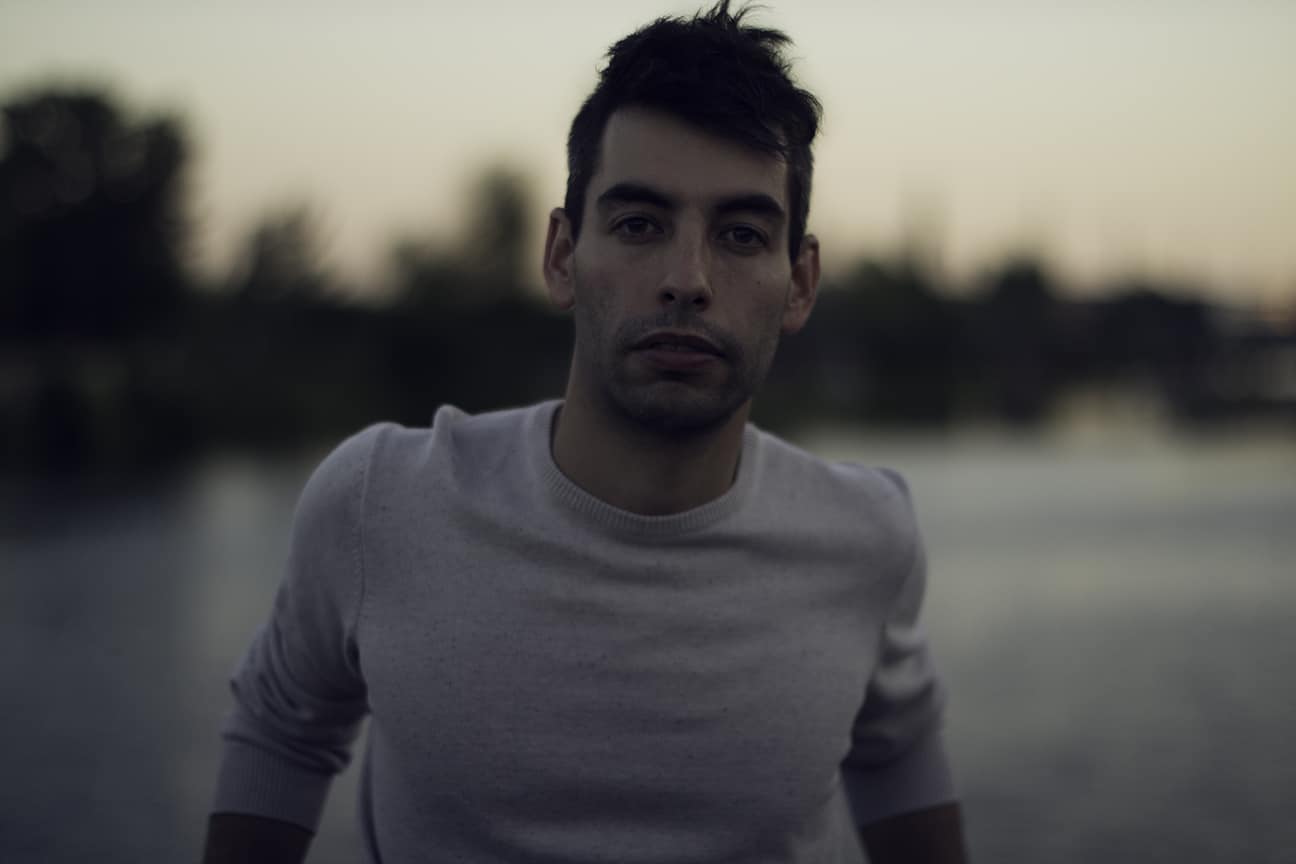
Leif Vollebekk: Yeah. Oh, yeah, totally. Yeah, you work on other songs, but I can tell that they’re not… There’s something that happens when a record’s out in the world. It’s a very different feelings. It doesn’t make a sound or anything. It doesn’t have a name. Because some people go, “Oh, it’s no longer yours.” And I’m like, no, it’s not that. It’s like it finally exists, you know? Yeah. Like carpenters, they have a start point with their wood. They make it. And you’re like, okay, the bench. Now we can sit on it and we can see it. You can touch it with your fingers. You can go, “There it is,” and it’s a bench and it’s very clear on what it does and what it’s made of, and you can sell it or keep it.
With music, it’s like if no one listens to it, it doesn’t exist. It’s not anywhere. It’s actually nowhere. It doesn’t exist. Without a human ear hitting airwaves, air being pushed, sound waves, I mean, into your eardrums, it’s not anywhere. Right now the record is all just digital numbers in a computer. It’s not being heard. It doesn’t exist. It’s weird. And so once it’s out and people are listening to it, the record’s alive. It’s a really nice moment.
I get that.
Leif Vollebekk: Anyway, it’s a nice feeling. It’s a crazy feeling. And it doesn’t involve me, but it’s nice when it’s out there.
As we close and say goodbye, I'd love to hear from you, who should I be listening to? Who's been inspiring you lately and who's been getting you really excited?
Leif Vollebekk: As the “songwriter’s songwriter.” I would say, not to be like too much, but I just love Angie McMahon’s new record. She’s so fucking good, and she’s so not old. It’s crazy. And she’s got these, you know, Joni Mitchell talks about it, how she’s a bit sexist in a good way. But she’s like, “Men are always trying to resolve things.” And when Joni Mitchell played with people, they’d always try to add roots to her songs, and she’d be like, “No, this song floats. It doesn’t have roots in it,” inversions. And guys have trouble, but women didn’t. And I know what she means. And Angie does that. She’s got a few songs that I think they’re going to end, and they just keep going up, and they just keep flying away, and the melodies turn. And there’s a song called Standout of hers that is so good, and I don’t know how to play it. I don’t understand it. Anyway, she’s amazing.
And Gregory Ivan Isakov is just, I don’t know, every time he puts out a record, I’m like, oh, I like the other one better. And then all of a sudden, I’m like, no, this one’s better, every time. And he just keeps doing it. He just keeps coming up with these lines that are so good, just amazing lines. And i had written. Anyhow, that song Chemicals, “You saw her bathing,” and “You’re jealous of the water,” and I tried to write that line on another song for this record, and it didn’t work, and I cut the song, and then I was like, “Oh, jealous of the water! Oh! That’s the line.” And he got it, and he won, and now my song, I’m like, I’m never going to play it. He nailed it. But, yeah, Gregory Ivan Isakov, of course.
Leif Vollebekk: If they didn’t make music, they would be my favorite people on earth, like they are. And so it’s like, and they make music, and I don’t think it’s a coincidence. They’re really wonderful human beings, and so the music that they make is from that experience of theirs, but it’s really nice. And then you hear about musicians being assholes and they make good music, and with them, it’s not the case, though. It’s just kind of, it makes it deeper somehow.
Well, listen, Leif, so that I don't take up your entire evening, let me just thank you so much for your time!
Leif Vollebekk: Oh, thanks for your time! Thanks for caring and taking a listen to the record and everything.
— —
:: stream/purchase ‘New Ways’ here ::
— — — —

Connect to Leif Vollebekk on
Facebook, Twitter, Instagram
Discover new music on Atwood Magazine
? © Vanessa Heins
New Ways
an album by Leif Vollebekk


